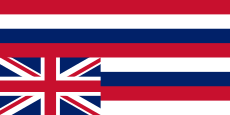| Part of a series on the |
| Hawaiian sovereignty movement |
|---|
 |
| Main issues |
| Governments |
| Historical conflicts |
| Modern events |
| Parties and organizations |
| Documents and ideas |
| Books |
The Native Hawaiian Government Reorganization Act of 2009 S1011/HR2314 was a bill before the 111th Congress. It is commonly known as the Akaka Bill after Senator Daniel Akaka of Hawaii, who proposed various forms of this bill after 2000.
The bill proposes to establish a process for US federal recognition of Native Hawaiians similar to an Indian tribe. However, the bill prohibits indigenous Native Hawaiians from gaming and other benefits available to federally recognized Indian tribes. The 2009 House version of the bill prohibited indigenous Native Hawaiians from pursuing their claims in the courts and arguably legitimizes past transfers of Hawaiian land that would not have been legitimate for Indian Tribes. The most updated Senate version however allows Native Hawaiians to pursue claims in court.[2] On December 16, 2009, a Congressional House Committee passed an unamended version of the Akaka Bill. On the following day, the Senate Indian Affairs Committee approved the amendments in S. 1011, the Senate version of the Native Hawaiian Government Reorganization Act. As of January 10, 2009, H.R. 2314 was not completely consistent with S. 1011.
Akaka said on the floor of the U.S. Senate in December 2010 that "misleading attacks" and "unprecedented obstruction" led to the failure of legislation in the 111th Congress.
- ^ Spencer, Thomas P. (1895). Kaua Kuloko 1895. Honolulu: Papapai Mahu Press Publishing Company. OCLC 19662315.
- ^ "Ka Huli Ao Center for Excellence in Native Hawaiian Law issued a summary of recent changes".